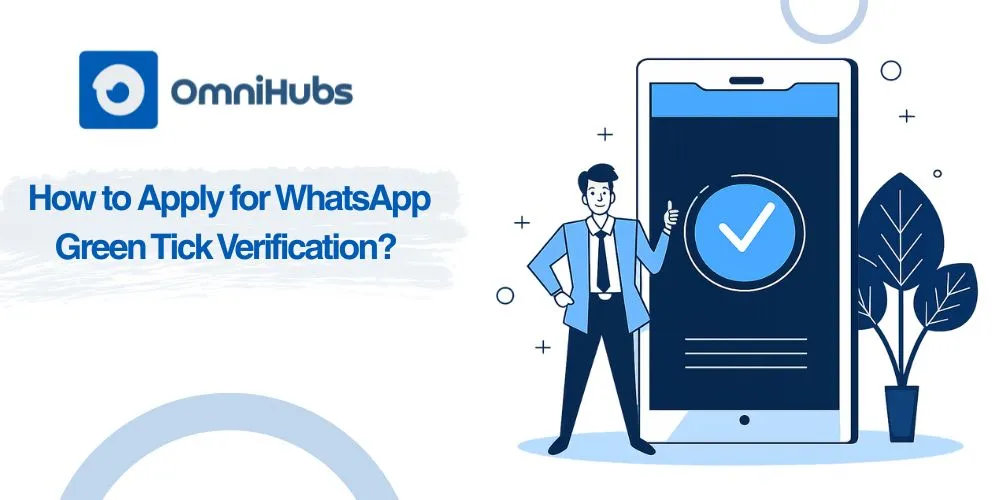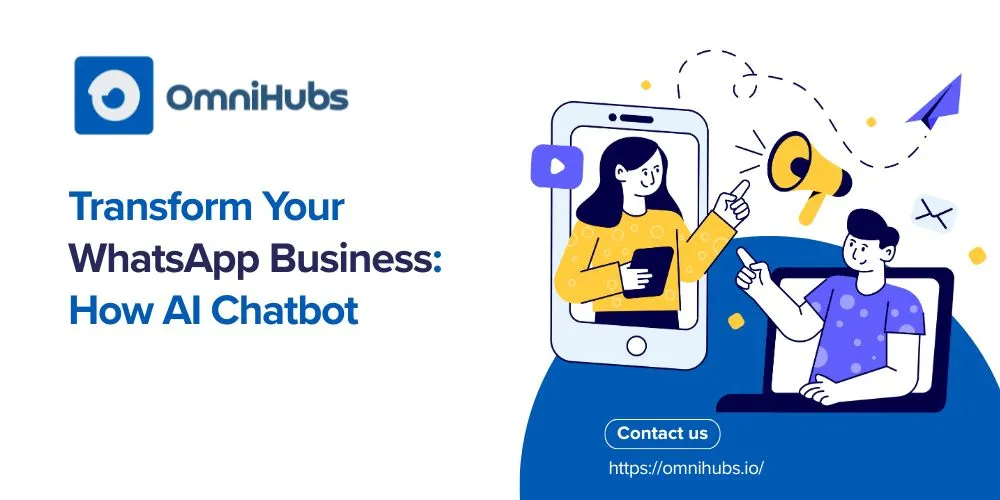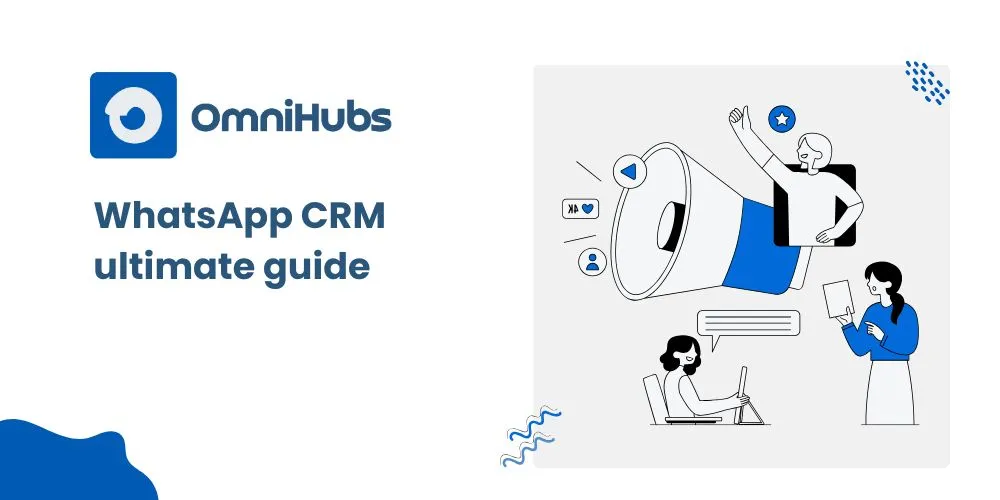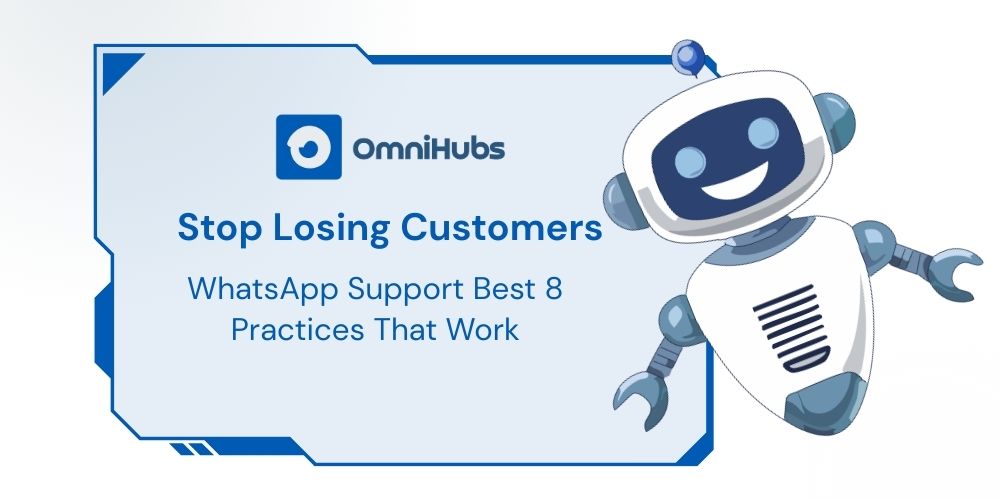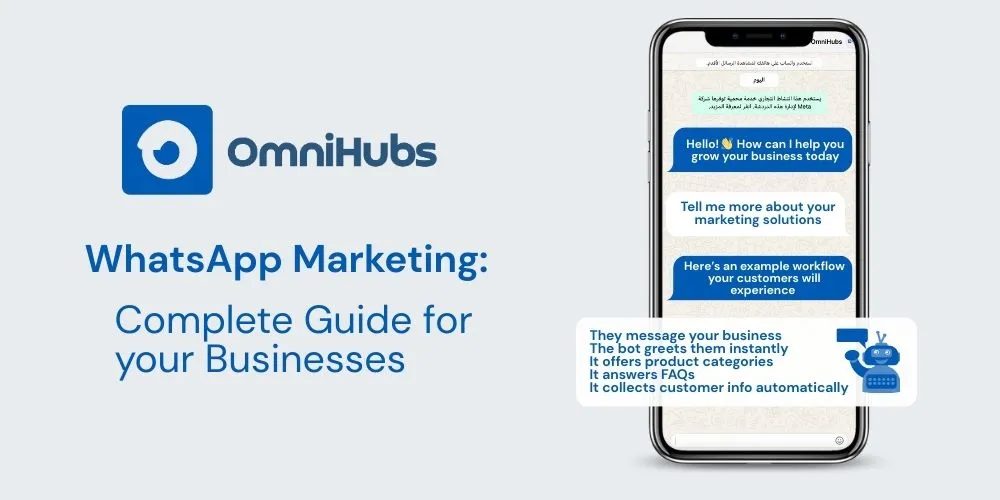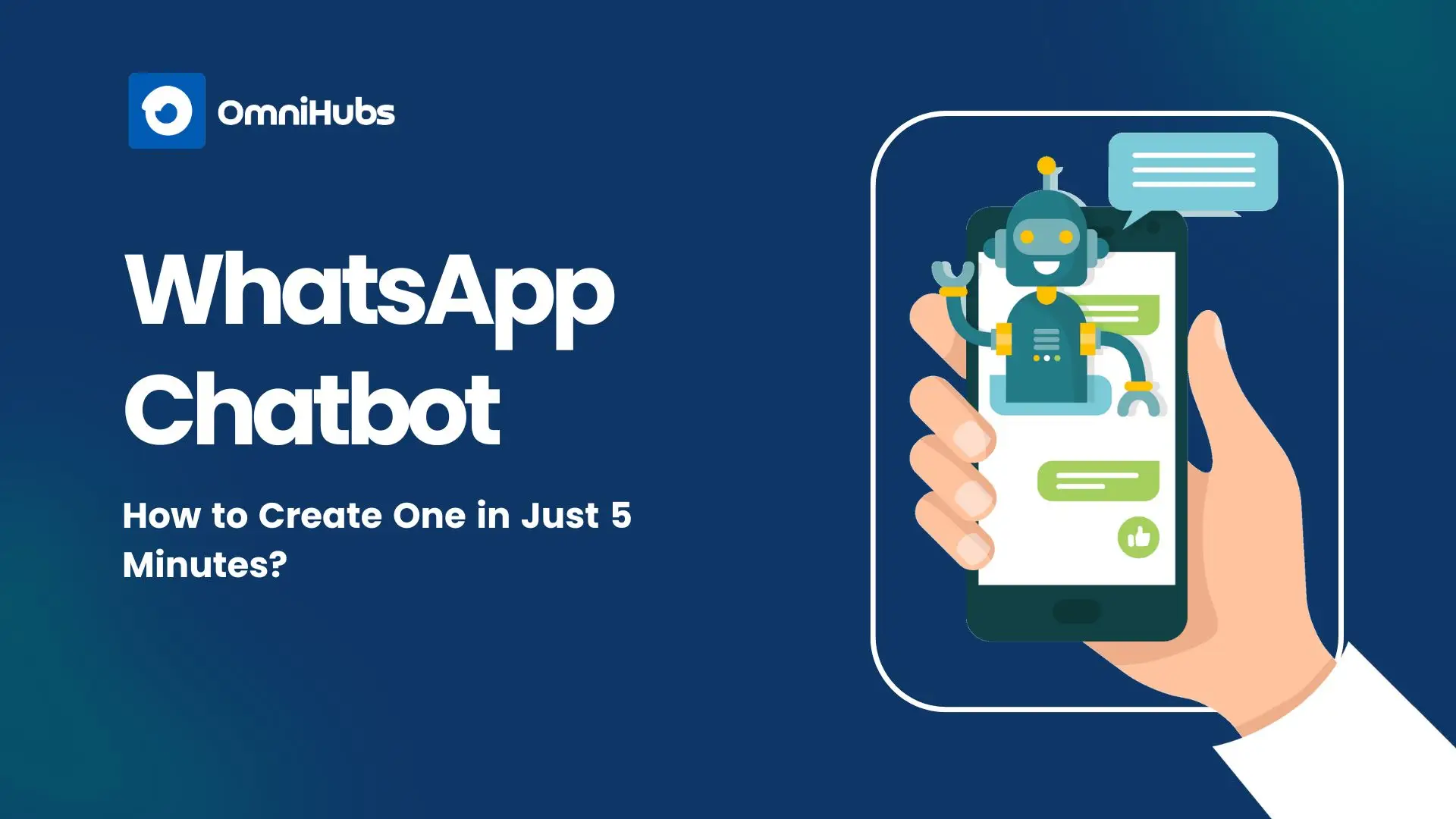
Imagine this: a customer visits your WhatsApp at 2 a.m. looking for immediate help. By using an automated chat experience, instead of waiting for a response until the morning, the customer receives a response, a product suggestion or even a complete order, all without a human agent typing any words. That’s the power of a WhatsApp Chatbot.
Businesses around the world are opting into AI chat experiences and for good reason. In fact, more than four in five companies who use conversational marketing tools have reported increased sales and customer engagement. On top of that, with WhatsApp being the dominant global messaging platform, you have the ability to create a seamless always-on, always available chat experience for your users that feels personal and on-brand yet still scalable.
In this guide, we will explore what makes a WhatsApp Chatbot, why it is becoming critical for modern businesses, and how you can build one today in little time.
WhatsApp Chatbot Defined_Beyond the Hype
A WhatsApp Chatbot is more than just a script that spits out canned responses. A WhatsApp Chatbot is like a smart assistant living in your most-used messaging app. It’s listening, understanding, and replying.
- That means answering basic customer questions on the spot.
- Providing updates on orders or deliveries.
- Gathering leads and walking them through a sales funnel.
- Walking people through a process, step-by-step.
The magic is in its consistency and availability. Without breaks or hours. With no lag time in responding, customers feel like they can reach your brand all the time, anywhere with responses that feel targeted and relevant.
Why Your Business Needs a WhatsApp Chatbot
If you’re already using WhatsApp Business, a WhatsApp chatbot will add even more value. Here are just a few ways a WhatsApp chatbot can make your WhatsApp Business even better.
- Provide Great Customer Service
A WhatsApp Chatbot guarantees instant answers for your customers, minimizing their time spent waiting and building trust and reliability. This enhances customer satisfaction and loyalty.
- Automate Repeating Questions
With automated replies via chatbots, your team won’t have to repeatedly answer the same questions. After creating the programmed responses, a chatbot powered by the WhatsApp Business API provides instant, precise, and predictable responses. This gives your team time to focus on more complex tasks.
- Improve Engagement and Drive a Sale
Using WhatsApp chatbots turns user engagement into conversations. WhatsApp chatbots guide users, using personalized conversation flows, to nurture prospects while showcasing products and driving customers toward a purchase; thereby, making the experience with your brand more engaging.
- Operate 24/7
Anytime someone sends a message on WhatsApp, your business is available. If your customer is in Chicago or Singapore, the WhatsApp Chatbot is available to respond no matter how far away they are. When you respond to inquiries, you show your customer that their needs are important, even if they are not in your office, building trust and differentiation by always being available, if needed.
What are the Practical Use Cases of WhatsApp Chatbots
If you’re not quite sure how to get started with a WhatsApp bot, here are a few types of common use cases that organizations are already doing:
- Automated FAQs
No more answering the same question five different times. A WhatsApp chatbot can instantaneously respond to questions regarding price, return policy, hours of operation, or estimated delivery. This decreases the strain on your team and ensures your customers always receive a timely and consistent response.
- Easy Lead Screening
Before a salesperson spends time on a call, the chatbot can do a quick screening of the prospect. The chatbot can ask basic questions – budget range, location, or interest in service to nothing just to high-intent prospects move forward.
- Real-Time Notifications and Updates
Whether it’s confirming a purchase, sending shipping updates, or a heads up about a delay, the chatbot is an active communicator. The customer is updated, and a support team receives less repetitive questions.
- Appointment / Demo Scheduling
Customers can book directly in WhatsApp for a consultation, service visit or product demonstration. The bot manages availability, books appointments and sends reminders automatically.
- Post Purchase Feedback Collection
After a service or delivery, the bot could ask customers to take a short survey or rating to collect feedback. This provides businesses with beneficial information, whilst showing customers that their opinion is valued.
A Quick Brief on WhatsApp Business APIs
For businesses seeking to add WhatsApp to their customer engagement efforts, WhatsApp Business API is an advanced tool to help them enhance chatbot functions.
Benefits & Features:
- Instantly Respond to Questions: The API allows your chatbot to identify the most common questions considered by customers and answer them quickly and accurately.
- CRM Integration: If all permissions are in place, the chatbot can retrieve customer data and respond accurately and contextually.
- Pro-active Messaging: The ability to send notifications, reminders, and promotional content automatically can drive engagement and sales.
- 24/7: The chatbot will run continuously via the API and be available for queries from customers in different time zones, allowing consistent communication.
Integration Considerations & Best Practices:
- Use Proven Solutions: Work with recognized WhatsApp chatbot providers in order to ensure a high level of integration and scalability.
- Monitor Chatbot Outcomes: Evaluate and improve your chatbot’s responses, continuously, and involve the users perspective to become more accurate and improve experiences.
- Customer Composure: You should ensure the responses feel natural, helping and bespoke to give a good impression of smoothness and professionalism.
A Step-By-Step Guide to Create Your WhatsApp Chatbot in Minutes
- Create Your WhatsApp Business Profile
- Importance and Benefits: It’s vital that you have a fully registered Business Profile before you start using a WhatsApp chatbot. A Business Profile improves your brand authority and allows you to access features to facilitate business and customer engagement in a more professional manner.
- How to Set it up: Start by downloading WhatsApp Business; fill out your business details, sign up your phone number, and add your logo and about me. This will be the business profile through which your chatbot will conduct all conversations.
- Choose Your AI Chatbot Platform
- Why our Platform is Different: While there are many different platforms with varying levels of quality, our platform provides a responsible onboarding, user-friendly design experience and comprehensive help and support. These features allow businesses to deploy a WhatsApp chatbot more easily and effectively.
- Benefits of a platform: In addition to ease of design, our platform gives you data analytics, automation compliance, and the know-how to troubleshoot your AI chatbot, ensuring your bot is performing from day 1.
- Plan Your Chatbot’s Flow
- Understand User-Inquiry: our platform has a flow builder to help shape customer interactions and predict common inquiries. Create your chatbot responses to be precise with minimal delay to better customer satisfaction.
- Customized Responses: Leverage the WhatsApp API, your chatbot is able to receive permitted user information to deliver responses customized to user preferences, improving engagement.
- Launch and Advertise Your WhatsApp Bot
- Introducing Your Chatbot: Let your current customers know you have created a WhatsApp assistant for them through campaigns and promotional messaging.
- Visibility: Share your chatbot on social media, your websites, newsletters etc., to maximize viewership and encourage more interaction.
Best Practices for a Solid WhatsApp Chatbot
- Humanize Your Bot
- Make it natural: WhatsApp chatbots should not just respond to the users — the chatbot should engage with users and show a human-like persona through informal language, emojis use, and/or playfulness when appropriate to promote real engagement and develop a feeling of personability.
- Let User Feedback Help You
- Scale user knowledge: Collecting user feedback should always be a standard practice to understand user satisfaction and opportunities for improvement. Feedback via the user satisfaction method can help you change your chatbot with user-originated data.
- Data Analytics: WhatsApp Business API analytics provide data metrics on average response time, engagement, and satisfaction level, that can contribute to continuous improvement. Change conversation flows wherever you detect inadequacies or issues.
- Handle Complex Questions Correctly
- Human encounters: No bot will respond to every inquiry, therefore immediately implement a procedure for handoff of complex questions to a live agent, to avoid contaminating trust with consumer frustration.
- Knowledge Base: Any unanswered, difficult questions should be added to the bot’s knowledge base in order to not only streamline future bot design but also create smarter consumer classifications for the best experience possible.
- Security and Transparency
- Bot identity: Let users know they are using an automated assistant. The discussion flows may feel informal, but trust can only be built through transparency.
- Data protection: Use a platform, along with security tools, to ensure customer information is protected and make it a priority to ensure all data is stored legitimately and ethically.
You can see your plan for whatsApp business API pricing
Quick Start with Pre-Built Templates:
If you don’t want to go through the hassle of designing every interaction manually, our platform has available WhatsApp templates for many common business use cases, so you can launch your chatbot in minutes with little to no configuration.
Monitoring and Optimizing Performance of Your WhatsApp Chatbots
While launching your WhatsApp chatbots is the first step, the next crucial step is monitoring and optimizing your bots to ensure they continue providing value. Here are strategies for optimizing the performance and satisfaction of your bot:
- Evaluate Bot Metrics
- Use the WhatsApp Business API: Utilize the API to measure your bot performance. Measure engagement rates, response times, successful completion rates, and overall satisfaction to measure effectiveness.
- Seek User Feedback: Get users to report their experience after every interaction. Input from your users is essential as you may learn how to improve performance and better use customer experience.
- Use Improvements Iteratively
- Find actionable items: Take action and create actionable items based on your users’ feedback. Identify response flows to adjust, messaging to change, and ways to optimize interactions so that you or your bot can continue to better serve your customers.
- Keeping contents up to date: Businesses and the world changes, and so should your chatbots. Enjoying the interaction with the chatbots or automated responses will require your local information and respond accurately with the number of changes taking place and as with your service, update when it is dated.
- Collect feedback strategically
- Use short surveys: Send simple surveys or polls to users periodically. This is a proactive way to learn about preferences, satisfaction, and opportunities for improvement.
- Spot behavioral trends: Study how users have interacted with your chatbot through the WhatsApp Business API to find recurring patterns or common questions. This will help find opportunities to optimize your bot and user experience.
- Adapt to changing user behavior
- Think ahead: Always observe how users interact with your chatbot. As users engage with your bot, it’s essential to change flows, responses, and reflect on your content based on their expectations and in accordance with business needs.
- Test and learn: Try different bot messages, sequence of conversations, or promotional bids over time. Measure the results to see what has resonated most with your audience.
A WhatsApp chatbot is not a “set it and forget it,” solution. A WhatsApp chatbot can remain a living, breathing, high-performing asset, generating value for your business while continuously adapting to your customers’ needs, when you continuously track metrics, iterate on feedback, and adapt to user behavior.
WhatsApp Chatbot Use Cases for Various Industries
It is hard to imagine life without WhatsApp chatbots- whether it is scheduling a doctor’s appointment for a consultation, tracking an online order, or booking a hotel for a vacation. WhatsApp chatbots are changing how businesses operate in numerous industries including Healthcare, E-commerce, Hospitality, and Banking.
- Healthcare
Appointment Scheduling and Reminders:
Long wait times and missed appointments are a thing of the past! Our WhatsApp Chatbot automates appointment booking for clinics and hospitals, allowing patients and staff to have a seamless experience. Automated reminders help reduce no-shows and remind patients to attend timely.
Answering Common Medical Questions:
Patients usually have questions about their symptoms, the medication they are taking, or visits to the hospital. Using the WhatsApp Business API, Our chatbot can provide instant and dependable answers to frequently asked questions allowing for better healthcare customer support and a reliable source of information that is accessible to patients on demand.
Health tips and medication reminders:
Taking action to improve health is better for patient wellness. The chatbot can send personalized health tips based on an individual’s health concerns and interest, from dietary and fitness suggestions to specific exercise plans. Medication reminders encourage patients to follow their prescriptions consistently.
Increasing patient’s trust:
Trust is an important factor in digital health today. A thoughtful chatbot flow that is user-friendly, empathetic, and consistent can help patients feel recognized and valued, thus supporting the patient’s confidence and satisfaction.
- E-commerce
In e-commerce, automation is changing the game and WhatsApp chatbots are at the forefront.
Product Information & Personalised Recommendations:
The sheer volume of online products can overwhelm customers. Shoppers often need help during their purchasing journey. Our chatbot can supply information on the product features, a brief on customer reviews, and personalized recommendations based on browsing history and preferences.
Real-time Order Updates
Waiting for packages to arrive can be stressful for customers! The WhatsApp business API allows the chatbot to give real-time updates on order delivery information, reducing the number of support tickets.
Return Management & Feedback Collection:
The chats provide a simple way to manage returns, exchanges, and collect feedback. As fast, preapproved responses are generated, the feedback learnt allows continual improvement to the customer experience.
Automatic Answers to Frequently Asked Questions:
The chatbot will automatically handle all customer queries about payment options, shipping, terms of conditions, etc. This will add simplicity and efficiency to the purchase journey.
Promotions & Activity Updates:
In a competitive industry, you have to be a step ahead. Engage customers when you have new arrivals, discounts or promotional offers through an interactive chatbot flow – the engagement will increase sales opportunities.
As part of the e-commerce ecosystem, WhatsApp chatbots will provide important work that strengthens the relationship between the businesses and their customers.
- Banking & Finance
Account Balances Checking and Transaction Updates:
Customers no longer need to go through portals or call support for balances and transactions. Users have instant access to their account information through our chatbot, maintaining an informed userbase at all times.
Quicker Customer Support for Financial Questions:
Customers often need help/assurance about loans, interest rates, and account features. The WhatsApp Business API allows the chatbot to provide fast and accurate answers to frequently asked questions, supporting users while they make financial decisions.
Financial Tips and Service Updates:
The chatbot can provide personalized financial advice, news, and updates about banking services to keep customers informed in a fast-moving financial environment.
Security and Trust Improvement:
Banks tend to hold sensitive customer data, so security is of utmost importance. Our chatbot offers companies encrypted communication channels, secure data handling, and knowledge of regulatory compliance that fosters trust with users.
Simpler Access and Onboarding:
New customer onboarding and gaining access to banking services is made simple by planned flows for customers and delightful banking experiences.
Are You Ready To Launch Your WhatsApp Chatbot?
Whether you want to improve customer service, boost sales, or save time, a WhatsApp chatbot can revolutionize the way your company interacts with clients. It offers speed, scalability, and easy implementation, especially when you use our chatbot. There is zero coding involved and in a matter of minutes, you will have your first chatbot live to allow for smarter and automated conversations right on WhatsApp.
The WhatsApp Business API opens so many possibilities for you to design not just efficient chatbot flows but highly personalized chats to really make every interaction feel unique for the customer.
Want a first-hand look? Sign up for a free trial with our chatbot and discover just how powerful it can be to automate, engage, and grow your business.
FAQs
- What is the difference between WhatsApp Business and a WhatsApp chatbot?
A WhatsApp Business lets small businesses communicate manually with customers. A WhatsApp chatbot allows you to automate responses/ interactions and support 24/7 without you needing to intervene.
- Does it take coding experience to make a WhatsApp chatbot?
Not at all! Platforms like our platform have a drag and drop interface that makes the process easy and fully manageable for small businesses and anyone with no coding experience.
- Can a WhatsApp chatbot be used to send promotional messages?
Yes, as long as the customer has opted in to receive messages. If you are leveraging the WhatsApp Business API then you can also follow all policies and provide each customer with personalized promotions, announcements, and offers.
- Are WhatsApp chatbots designed for small businesses?
Yes. Chatbots improve small businesses by allowing them to save time, reply to customer questions at scale, and to maintain a high response rate (without hiring more employees).
5. Can I send Broadcasts via a WhatsApp chatbot?
Yes, chatbots are perfect for sending routine messages or broadcast updates and help with most communications so they make a great addition to your daily routine.
You can also register and book for the best business messaging platform.


